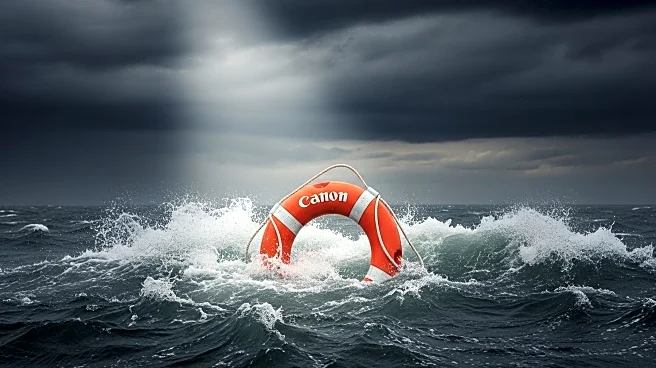What's Happening?
A rescue boat carrying 20 people capsized on the Indus River in Pakistan's eastern Punjab province, resulting in the deaths of nine individuals, including women and children. The incident occurred due to strong winds and fast currents, as reported by Musarrat Jabeen, the region's top government administrator. Rescuers initially recovered five bodies, with four more retrieved by Thursday morning. This tragedy follows a similar incident where five people died after the Chenab and Sutej rivers flooded the region due to water releases from Indian dams. The floods have displaced tens of thousands, with many residents still awaiting assistance.
Why It's Important?
The capsizing of the rescue boat highlights the severe impact of flooding in Pakistan, exacerbated by climate change and regional water management issues. The floods have displaced over 2.1 million people and killed at least 68 in Punjab alone, according to the Punjab Disaster Management Authority. The situation underscores the urgent need for effective disaster management and international cooperation to address climate-related challenges. The government's response, including deploying emergency services and compensating private boat owners, is crucial for mitigating the crisis and ensuring the safety of affected communities.
What's Next?
Efforts to reinforce embankments and deploy additional rescue resources are ongoing. Punjab Chief Minister Maryam Nawaz Sharif has ordered police action against private boat operators charging excessive fees and promised government compensation for evacuations. The focus remains on safe evacuations and providing relief to displaced residents. The government is expected to continue monitoring the situation closely, with potential policy adjustments to improve flood response and management.











